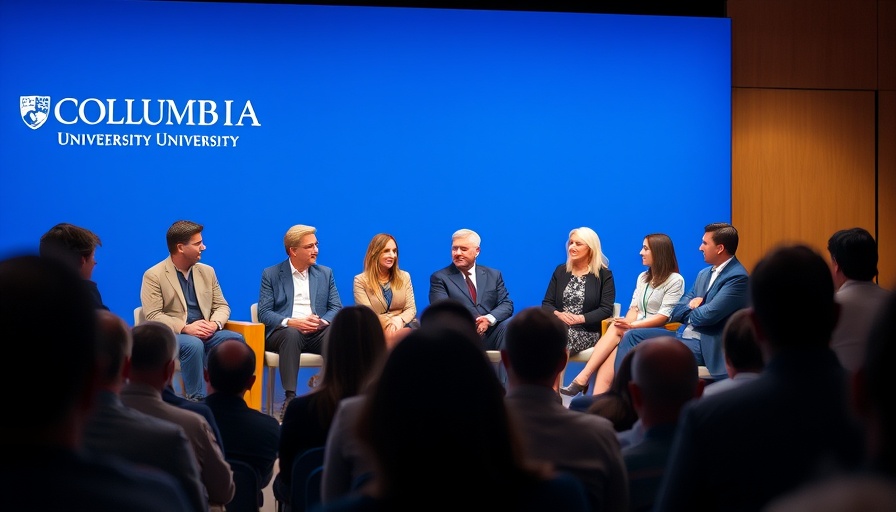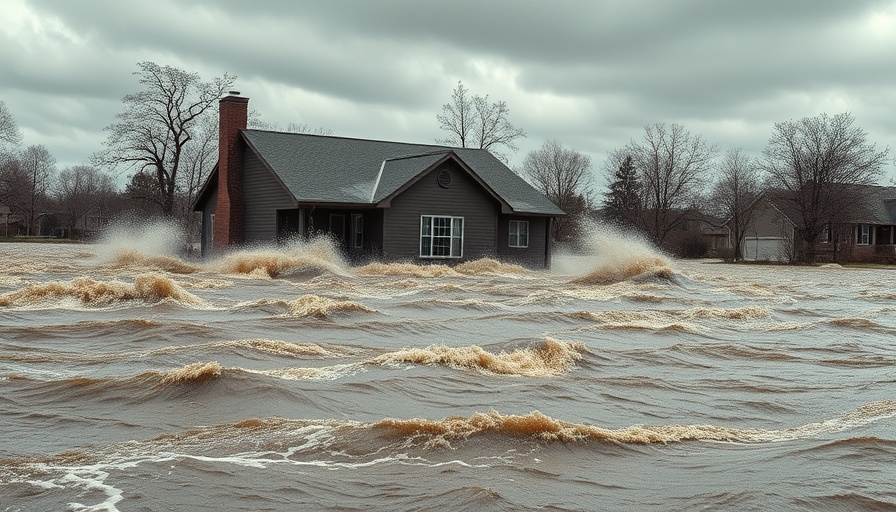
The Role of AI in Climate Resilience
On March 4, 2025, Columbia University hosted some of the brightest minds at its inaugural AI Summit, focusing on the intersections of technology and pressing global issues. One session, titled "From Chaos to Code: How AI Can Tame the Climate Crisis," highlighted the transformative capabilities of artificial intelligence in climate science. With the ongoing climate crisis signaling an urgent need for innovative solutions, AI emerges as a promising ally in this endeavor.
AI Innovations Redefining Environmental Science
One standout insight from the summit came from David Sandalow of the Columbia Climate School, who expressed enthusiasm for the potential of AI-driven materials innovation. In his illuminating remarks, he compared contemporary AI's abilities to those of Thomas Edison, who painstakingly tested various materials to develop the light bulb. Sandalow explained that today’s AI tools can simulate countless experimental scenarios in mere seconds, allowing researchers to conceptualize and test materials that may not yet exist.
This rapid capability can substantially accelerate the pace of energy innovation, which is essential in our quest for sustainable solutions to combat climate change. The goal is to identify optimal materials that can promote energy efficiency and contribute to sustainability.
Data-Driven Weather Forecasting: A Game Changer
Adam Sobel, from the Lamont-Doherty Earth Observatory, provided compelling insights into how AI is revolutionizing weather prediction models. Sobel noted that AI systems, which have dramatically improved in just a few years, can now match or even surpass traditional physics-based weather models. These models, trained on extensive historical weather data, can uncover complex patterns that are vital for accurate forecasting.
Such advancements are essential for disaster preparedness, enabling communities to respond more effectively when natural disasters strike. Particularly in regions prone to extreme weather, such as the Pacific Northwest, understanding these patterns can be the difference between safety and catastrophe.
Seeking Equitable Solutions for All
Another crucial theme highlighted during the session was the importance of equality in energy systems. Sobel discussed the ramifications of energy shortages, like those experienced in Texas during the winter storm of 2021. He emphasized that when energy sources falter, those often least able to bear the burden are among the first to lose access, pointing out that equitable energy solutions must be a focal point for future developments.
Building systems that prioritize inclusivity and sustainability is essential for creating resilience among vulnerable populations. It’s a crucial aspect that calls for collective effort from scientists, policymakers, and community leaders alike.
What This Means for Seattle and Beyond
For Seattle residents, engaging with AI advancements in climate resilience offers a unique opportunity to lead by example. As supporters of sustainable living, residents can advocate for and support local initiatives that integrate AI technologies in environmental planning, disaster preparedness, and community resilience strategies. Unique strategies can emerge when people come together to address these critical challenges, forming a community willing to innovate and adapt in the face of climate change.
By investing in AI solutions and fostering a culture of sustainability, Seattle can significantly contribute to the ongoing battle against climate change, paving the way for other regions to follow suit.
In conclusion, the AI Summit underscored a collective vision for leveraging technology as a crucial tool in tackling climate challenges. As we move forward, understanding and harnessing this potential can impact not just our climate initiatives but our everyday lives. Embracing AI can drive us toward a just and sustainable future, and Seattle stands to be at the forefront of this exciting journey.
 Add Row
Add Row  Add
Add 




Write A Comment